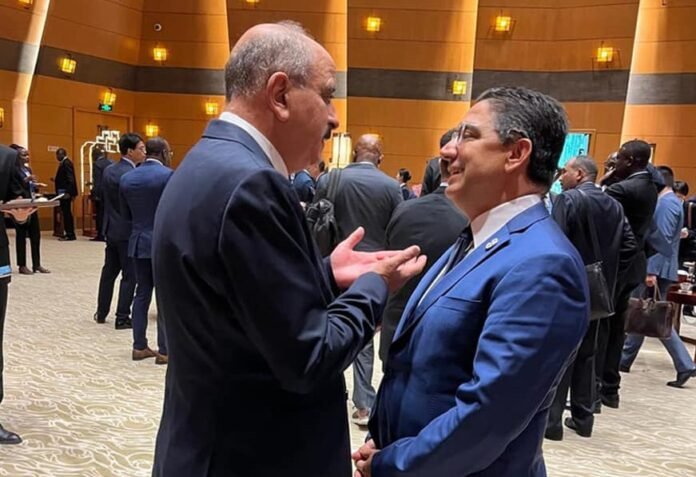In what could be the first step towards ending a diplomatic crisis that has lasted for more than two years, Tunisian Foreign Minister Mohamed Ali Nafiti met with his Moroccan counterpart, Nasser Bourita, in the Chinese capital, Beijing. This meeting took place on the sidelines of the preparations for the ministerial conference of the China-Africa Cooperation Forum and seems to represent a serious attempt to thaw the relations between the two countries since August 2022.
The Diplomatic Crisis: Its Roots and Consequences
The roots of the diplomatic crisis between Tunisia and Morocco trace back to Tunisian President Kais Saied’s decision to welcome the leader of the Polisario Front at the Tokyo International Conference on African Development. This reception angered Morocco, which saw it as a blatant violation of its territorial integrity, leading to the Moroccan delegation’s withdrawal from the forum and the recall of its ambassador from Tunisia. Tunisia responded by recalling its ambassador from Rabat, plunging the relations between the two countries into a standstill.
Is There a Chance to Rebuild Relations?
The meeting between Nafiti and Bourita opens the door to many questions: Does this meeting mark the beginning of a reevaluation of Tunisian-Moroccan relations? Can both sides overcome the obstacles that have hindered diplomatic dialogue for this entire period? Or is this meeting merely a symbolic gesture without substantial changes?
It is also important to question China’s role in facilitating this meeting. Were there international or regional pressures to rekindle dialogue between the two countries? What stance will other Maghreb and African countries take towards this ongoing crisis?
The New Tunisian President: Will He Play a Role in Normalizing Relations?
With a new president in Tunisia, there may be a shift in Tunisian foreign policies towards Morocco. The current president, Kais Saied, has taken a firm stance against Morocco by expressing support for the Polisario Front. Will the future see a shift in these policies? And will this shift lead to rapprochement between the two countries or the continuation of tensions?
The Future of Bilateral Relations: Challenges and Opportunities
While this meeting between the foreign ministers may mark the beginning of a thaw, the road to full normalization of relations remains long and complex. Political tensions and firm stances from both sides will require intensive diplomatic efforts and a genuine willingness to negotiate and compromise.
It is clear that rebuilding trust between the two countries will require more than just a meeting. Continuous dialogue and a shared commitment to finding solutions to existing conflicts, while focusing on common interests and mutual benefits, will be crucial.
In the end, the question remains: Will Tunisia and Morocco overcome this crisis and open a new chapter in their bilateral relations? Or will the current challenges remain an obstacle to any potential rapprochement?




